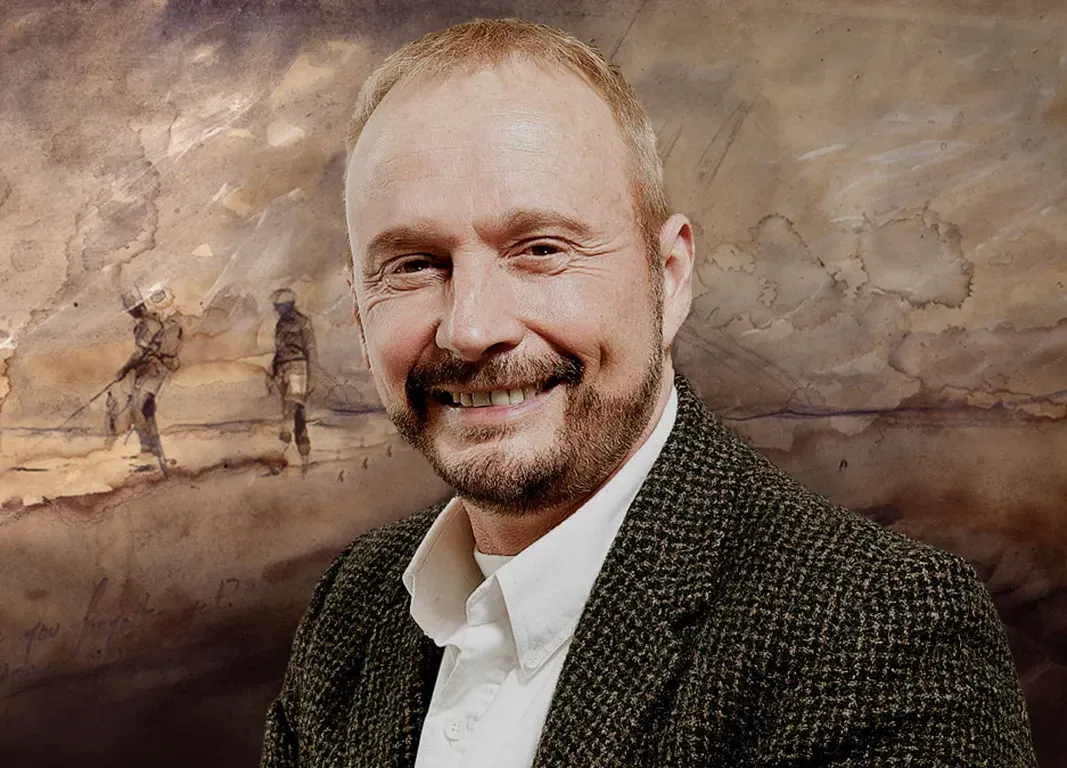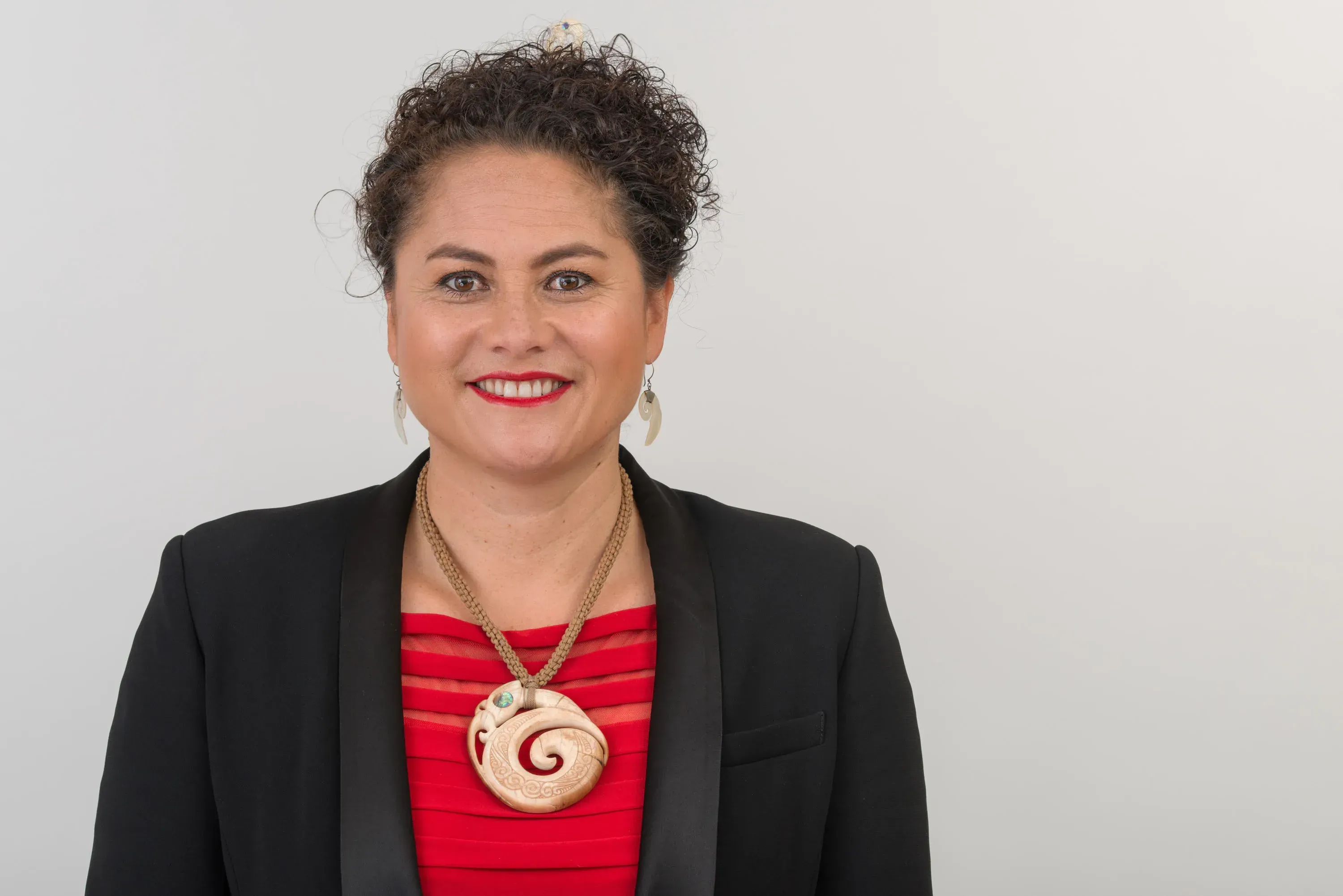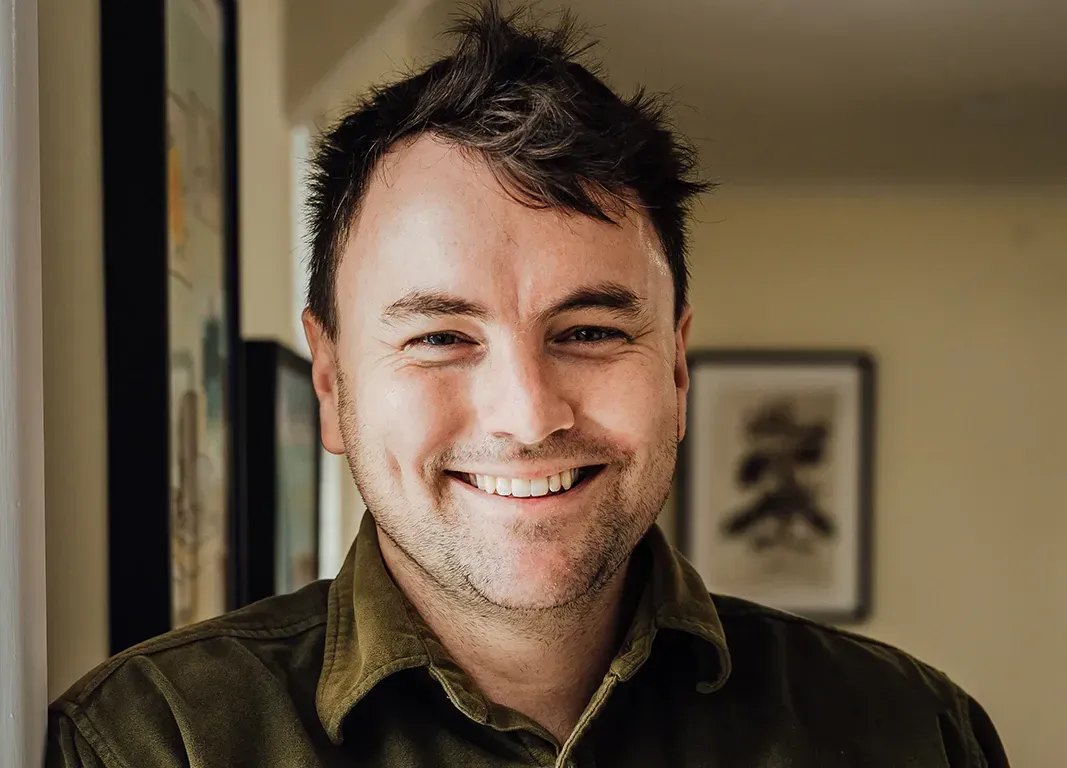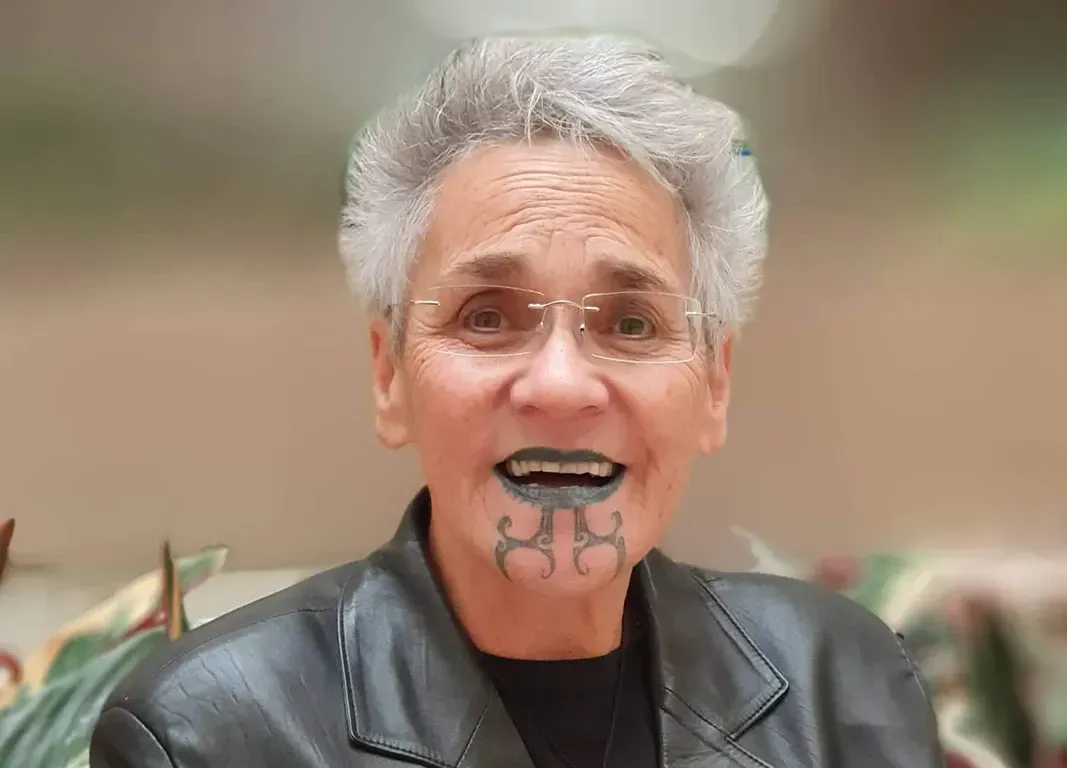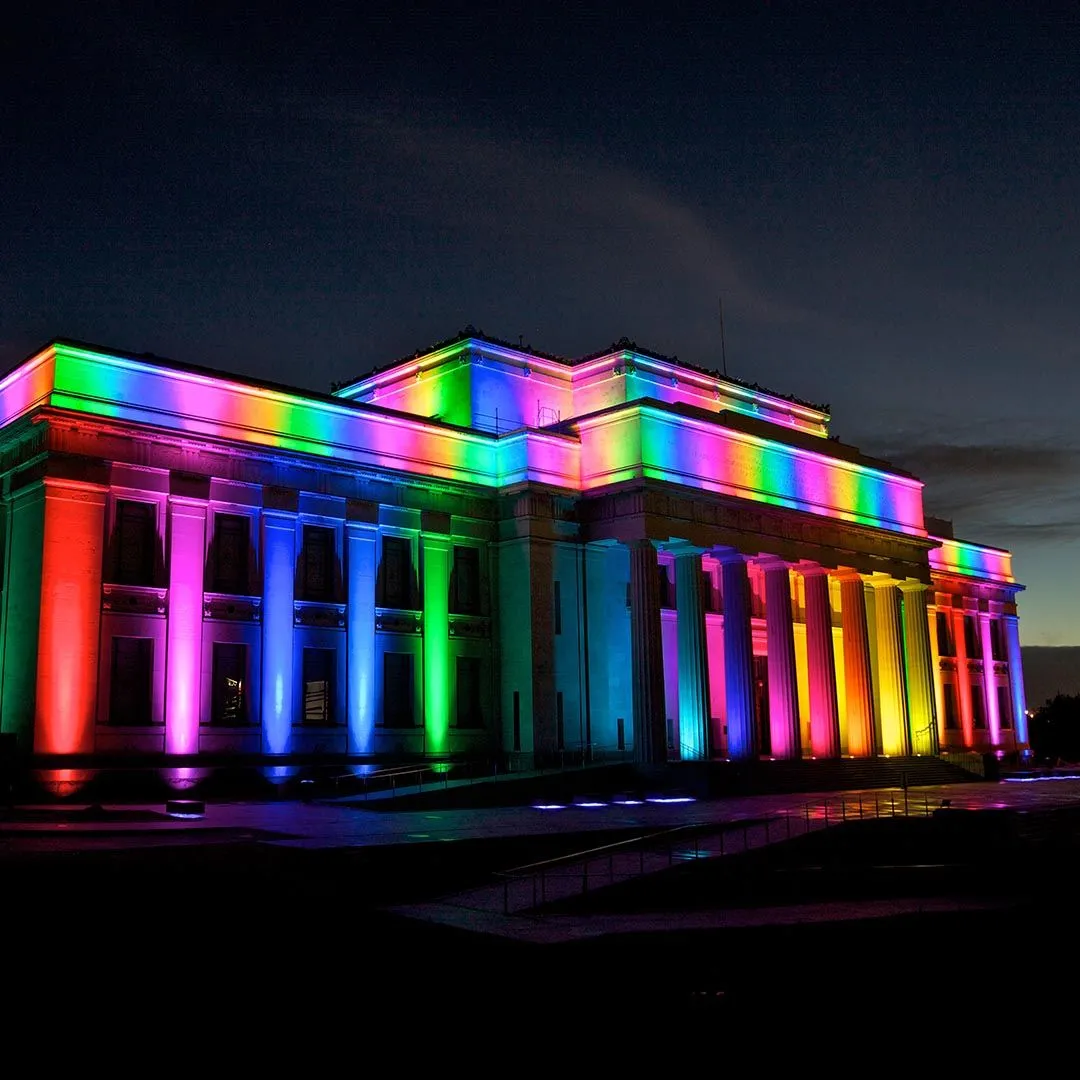Owning your identity
Written by
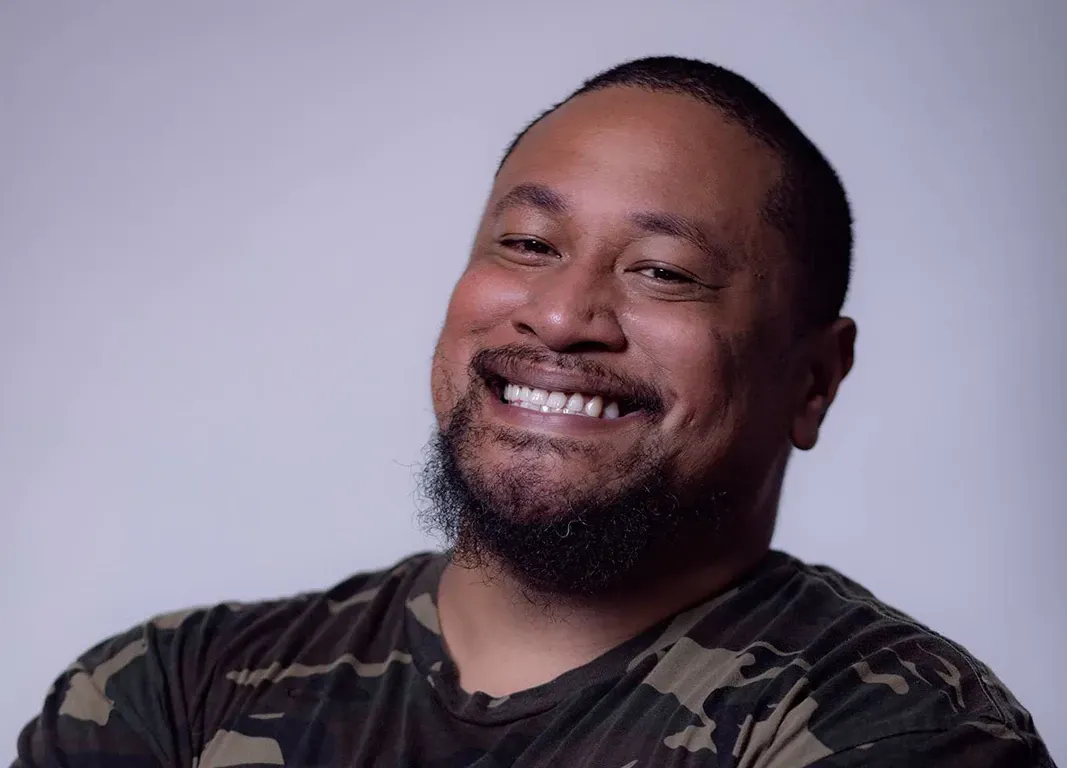
Pride presents Rainbow communities with the opportunity to express and celebrate themselves both as unique individuals and a communal identity.
While Aotearoa is relatively advanced in relation to LGBTQI+ rights compared to the rest of Oceania, it still bears the scars and open wounds caused by inequalities - both those unique to our country and those that impact us from elsewhere in the globe. There has been significant progress, but the struggle for equality continues for so many.
It's been almost 50 years since Marsha P. Johnson and Sylvia Rivera picked up a brick and a bottle off the Stonewall Inn floor to defend a community terrorised by the police and ostracised by wider society for the criminal act of being themselves. Amidst the glitter-covered parties, the craft nights and theatre offerings, Pride offers the Rainbow communities and their allies the chance to pause, reflect and acknowledge the past, present and future of LGBTQI+ rights.
On Monday, 10 February, Uenuku - PRIDE at Auckland Museum is hosting a panel discussion, bursting with Rainbow stalwarts. Louisa Wall, Welby Ings, Ngahuia Te Awekotuku and Tanu Gago will join Tom Sainsbury to share a sample of the rich collective experiences, contributions and perspectives that shape Rainbow communities within Aotearoa. It was a real pleasure to have the opportunity to kōrero with each of them about their legacies and advice for rainbow communities and allies alike.
Welby Ings
Welby is an academic, award-winning author, designer and director. His three short films Boy, Munted and Sparrow have been selected for many international festivals, including Cannes. Boy was shortlisted for an Academy Award in 2006. Sparrow will be aired after the panel discussion.
“Like many of our people at the time, I did whatever I could,” says Welby. The art director for New Zealand Gay News in the 1970s, Welby continued his work in Gay Rights of Waikato, the Gay Task Force behind the 1986 decriminalisation of homosexuality bill, and again for the push for amendments to the Human Rights Act in 1993.
“However, it’s behind these things that the real contributions lay [because] I was heavily involved in activism.”
Grassroots activism in the 70s and onward was fundamentally important, and dangerous. Parading with eight other people down Queen Street with banners as they were spat on. Protesting outside of court houses where men were on trial after police entrapment stings in gay saunas. Visting secondary schools to talk about Queer identities. Involvement in the AIDS Quilt project. Disrupting churches to publically argue with pastors spreading misinformation about Rainbow communities. In those days, Pride meant “small public protests where you weren’t protected by a volume of numbers. If you were photographed by the media you could lose your job.”
Welby says a turning point in LGBTQI+ rights came with the passing of the 1993 amendments to the Human Rights Act. “This legislation made it illegal to discriminate against people on the grounds of sexual orientation. [Decriminalisation] was profound, [but] this later change...protected a wider range of our people.”
We are a deeply diverse people and diversity is a beautiful and complex problem
Solidarity should not imply uniformity, though: “I actually don’t think there is such a thing as Rainbow community. We are a deeply diverse people and diversity is a beautiful and complex problem. No society reaches utopia. Our job, irrespective of our sexual orientation or gender identity, is to be vigilant, rational, strong, informed and compassionate. We need to take diversity seriously and ease back on trying to establish single, ‘appropriate’ ways of being and identifying... When you come out, you may be pressured to become an ideal. But we are all flawed and we do the best we can in a flawed world.
“Your gift is that you have grown up feeling and knowing what it is like to be on the outside….seize your identity and don’t allow yourself to become society’s exotic victim. Do good in the world. Being respected and valued gives you a huge agency.”
Allies, Welby asserts, “really matter. Speak up. Act up.” Banning psuedoscientific conversion therapy is one issue that needs support from Rainbow communities and allies alike. It’s currently banned in several places across the world. “The government is wringing its hands and saying the issue has to be weighed up against religious freedom. Religious freedom is important. It allows an individual to practice their personal faith … this does not extend to indoctrinating vulnerable LGBTQI people with medically discredited practices.”
Despite his contributions, Welby “is not that interested in being remembered. Many of my friends who were fine activists died during the AIDS pandemic so I have become very humble about claiming to have shaped where we are today. I am always uneasy about overly simplified histories that reduce the contributions of many people to the heroic public records of a few. I think that every queer person who comes out, who reaches out to make worlds better for other people, or who calls falsehood to account - shapes our world more profoundly than politicians who have their names attached to legislation...My contribution has been that I am a man who stands up.”
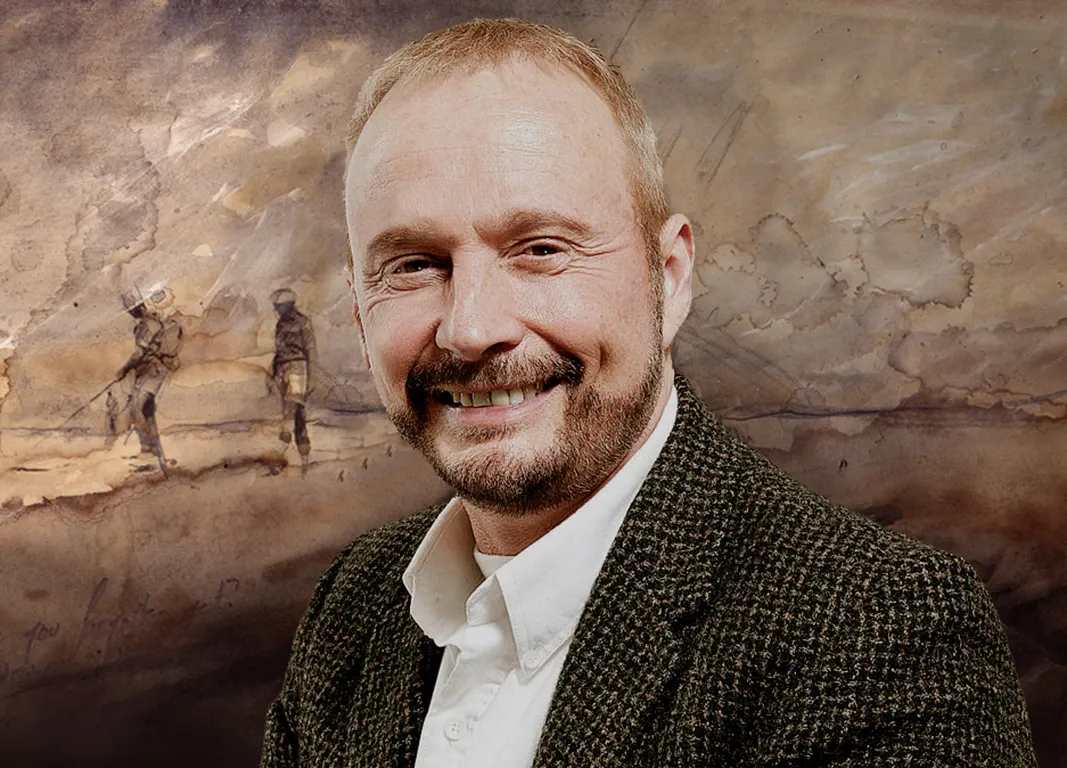
Welby Ings
Louisa Wall
After making a name for herself on the netball court and rugby pitch, Louisa turned her hand to politics, spearheading the Marriage Equality Bill which was legalised in 2013. This legislation made Aotearoa the first country in Oceania and 15th country in the world to legalise same sex marriage.
While her name is on the bill, Louisa celebrates it with the same collective ideal as Welby. “We mobilized and used our collective strength to pass a law that only 10 years earlier had caused much vitriol and ugliness” she recalls. “We rejected discrimination by the state, and championed inclusion and diversity and the right to choose marriage so it could be universally enjoyed.” This same rejection of discrimination “will help us address other systemic issues such as racism and sexism.”
For Louisa, Pride is an ongoing progress toward equality, personally and politically. “Society can always enhance our processes to ensure all members feel more included, valued, respected and represented. Cultural symbols of support such as the flying of our LGBTIQ+ flags...let us know that this community group...want to communicate their support. All regions across Aotearoa need to provide opportunities for our LGBTQI+ Pride events so we can celebrate collectively and publicly.”
Society can always enhance our processes to ensure all members feel more included, valued, respected and represented
She advises young LGBTQI+ people to “come out only when you are ready to do so. If you decide to come out, but are unsure how others might react, you could consider making contact with a support group first. You do not have to go through this process alone.” Louisa recommends OUTLine NZ as one such organisation offering support to Aotearoa’s Rainbow communities.
Allies should not force anyone around them to come out, “but you can help foster an environment where the person feels supported and safe to do so” says Louisa. “Help establish Queer-Straight Alliances within schools and workplaces and to encourage new allies to join such groups. Allyship is vital to social justice advocacy and activism.”
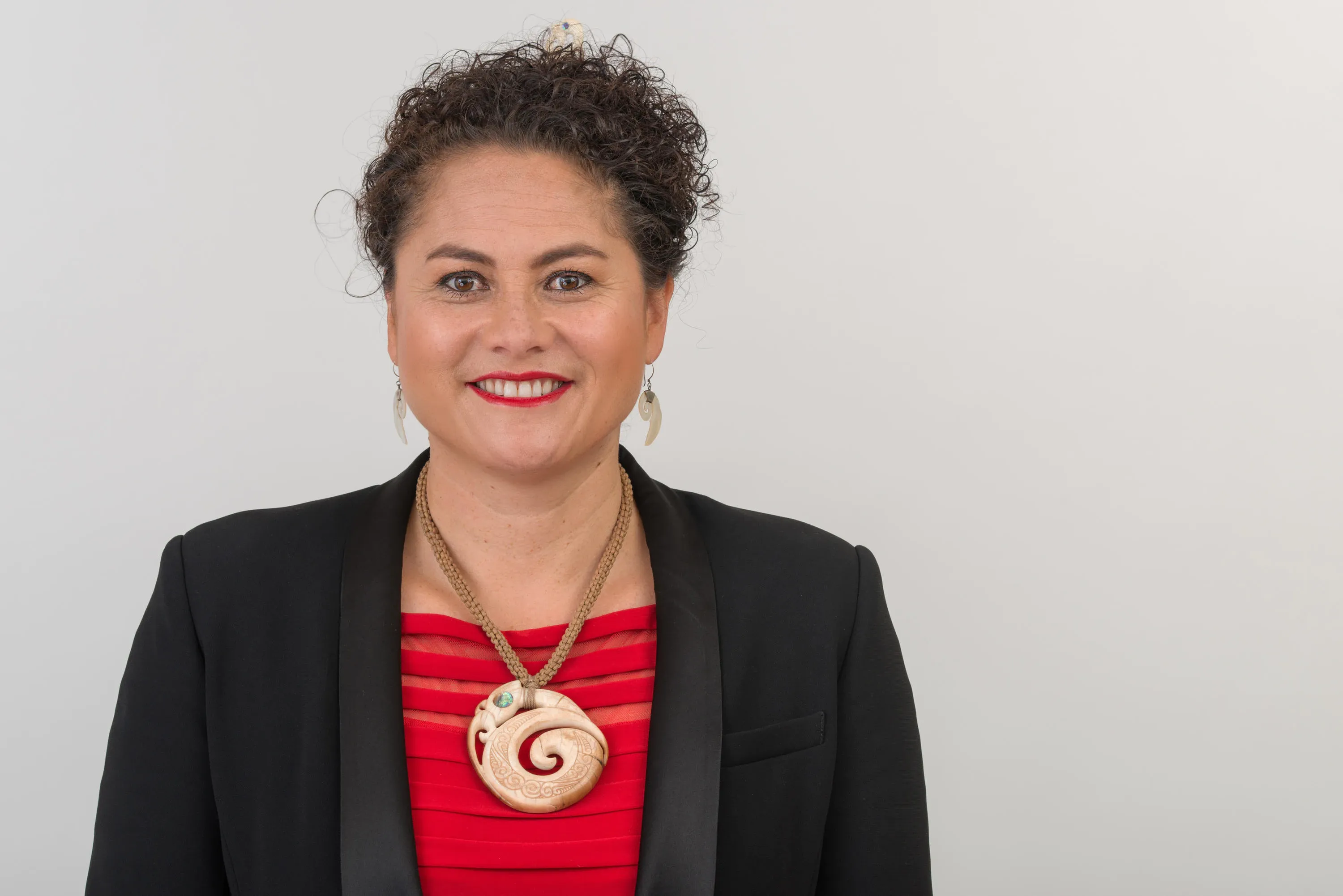
Louisa Wall
Tanu Gago
Voguing rose to prominence in Harlem, New York during the 1980s. It offered a space for mostly young Black and Latino men and transgender people to find a sense of community and self. It was also a survival tactic for those ostracised by their race, sexual orientation or gender identity.
Tanu Gago has been actively involved in FAFSWAG, an LGBTQI+ Pasifika Arts Collective that brings indigenous culture to the forefront of their work. Their goals: “advocating for visibility within Pacific communities as well as institutional spaces, decolonising art practice and creating safe spaces for LGBTQI+ people of colour.” They achieve this in part through their voguing balls.
I hope those looking back find a self-determined spirit for unapologetic visibility, institutional disruption and disobedience, and an empowering sense of cultural resilience
Says Tanu: “ I personally don’t feel the need to be memorialised. Indigenous models of leadership often mean leading from behind. It’s our people, our collective ideals and shared humanity that should be upheld above the pursuits of any one individual…..if you’re asking about legacy building, then I hope people and artists remember FAFSWAG as the generational wave that shifted cultural attitudes. I hope those looking back find a self-determined spirit for unapologetic visibility, institutional disruption and disobedience, and an empowering sense of cultural resilience.”
Tanu’s involvement in Rainbow communities is “ongoing…. I dip in and out of the scene but there are two things I feel a deep connection to. That is the current state of Queer Indigenous art practice, within the contemporary arts in Aotearoa, and the growing and thriving Ballroom scene here in Tāmaki Makaurau, represented by The Auckland Vogue Scene, Fale AITU, COVEN, House of IMAN, House of TAVITA, Murder House, House of Travel and Th3 ORDER.
“I look at these spaces and feel extremely proud of my contribution to them. They are two worlds that play a massive role in my identity and help to locate me within my own unique context, as an openly gay Samoan artist working within the wider Rainbow community.”
The state of LGBTQI+ rights in the Pacific today is of concern to Tanu. “There’s a tendency for those of us exhausted by the framing of our communities’ historical trauma, as the centrepiece of our narrative, that we can tend to...want to celebrate our historical milestones prematurely. We should be PROUD of how far we’ve come but we still need to...acknowledge that there are people in our communities still, that get left behind. We know anecdotally that our Pacific cultures play a key role in the way in which young, queer indigenous people see themselves and are able to navigate the complexities of their gender identity, sexuality and cultural identity... These are migrant communities where our cultural identities and histories are inextricably tied to our ancestral homelands.
“The current state of LGBTQI+ rights in the Pacific is something echoed here in New Zealand. We need to ask ourselves what commitments we have to enable change for all our communities, especially those with connections to places where human rights legislation is still somewhat antiquated.”
In an ideal world, being yourself shouldn’t cost you anything. But because it does, be yourself at all costs. You are enough and your life matters
For Rainbow people, his advice is simple. “In an ideal world, being yourself shouldn’t cost you anything. But because it does, be yourself at all costs. You are enough and your life matters.” Allies, Tanu asserts, “are critical to reducing harm to our community. Acknowledging your privileges and recognising when and where it is ideal to intersect and offer your support, can make an incredible difference...Allyship is more than a FB post or a bumper sticker, it requires almost zero courage and, in most cases, costs you nothing, but can change people's lives. Allyship is action. So, thank you all for your continued and ongoing support, it makes such a difference.”
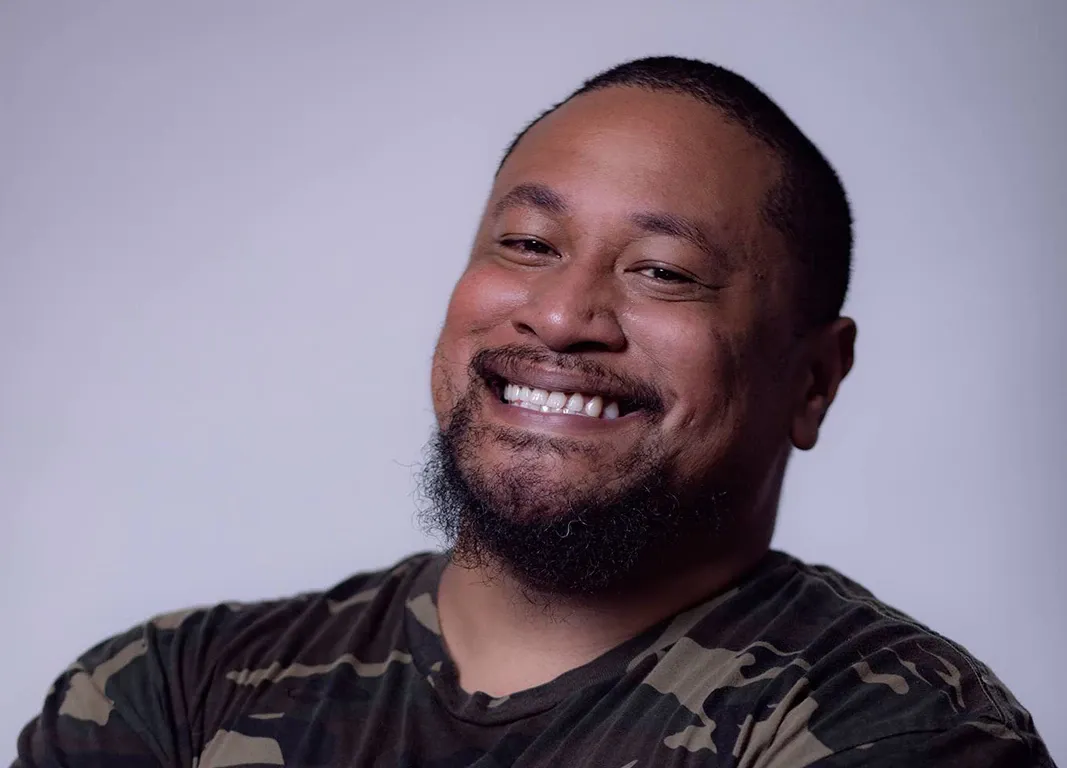
Tanu Gago
Thomas Sainsbury
Thomas Sainsbury has made a name for himself as a Snapchat comedian and actor, two skills he put to excellent use as an Auckland mayoral candidate ‘Fiona.’
“I don't feel I particularly have a role in the Rainbow community, but I guess, if someone thinks of me as a person of a 'Rainbow persuasion' then I'd like to be remembered as someone who didn't take it all too seriously. Everyone gets so heated about it all. I want to be the counter to that...I've done no campaigning, I avoid Rainbow events, being part of the Rainbow community is very low in my list of attributes. So, I can't say, with any honesty, that I've actively tried to shape [the community]. But I guess by being yet another gay man in people's consciousness, then I've normalised it just that much more for society at large and maybe given people of the Rainbow persuasion a little more licence to be comfortable in their sexuality.”
For Thomas, the biggest shift in LGBTQI+ rights in New Zealand was same sex marriage being legalised. “There's been a marked decline in LGBT suicides in countries where it has happened. And it's just normalising being LGBT within the wider society.”
Normalising Rainbow communities is at the heart of Thomas’s vision for progress. Society “shouldn’t give a shit. Don’t concern yourself with how your Rainbow neighbours are conducting themselves. Like, don't give a passing thought to how they live their lives. I know that sounds counter-intuitive, but I reckon if we all didn't give a shit how someone wants to live their lives (within the bounds of legality, and with common kindness thrown in of course) then we'd all be better off. Live and let be.”
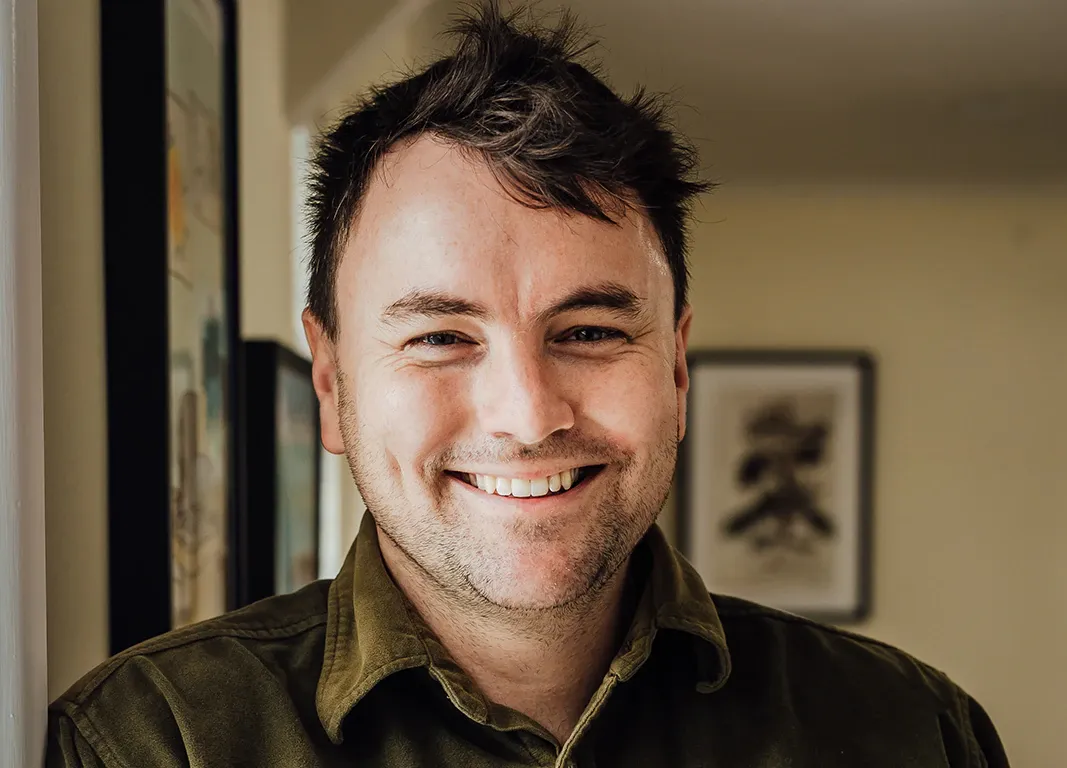
Thomas Sainsbury
Ngahuia Te Awekotutu
In July 1971, academic, writer and activist Ngahuia Te Awekotutu penned a piece about being “gleefully Lesbian” in Craccum, the University of Auckland magazine. “I lost my part-time teaching job, but worse, I was condemned by a senior female academic who I admired a lot” recalls Ngahuia. “My article’s conclusion was “We are not dangerous perverts, but real and thinking individuals. Why should we hide our faces while the public exposes its bigotries? Why should we be invisible?” This is what I still believe in; this is how I live. Without doubt, and without fear. And sometimes it’s been hard. I’d like to think that my consistent visibility, especially through my writing, has made a difference for some of our young ones.”
Community is important for Ngahuia. “Though as a Māori female, I have been superceded by the more glamorous and colourful male voices” she observes. “But we’re looking at fifty years of an activist and academic life. I’m still here, I’m still activating. As we yelled way back then, we’re here, we’re queer. And we’ll never go away.”
When asked about what the biggest change to Rainbow rights has been, Ngahuia responds. “That’s too big a question - there’s been lots of changes, especially in the political arena. I remain in awe of Georgina Beyer. And I think about film, television, social media, fiction & non-fiction, talking heads, sighing hopes. Popular culture makes it look as if we’ve come a long way. But we must remember those 73 countries – many in the Pacific – where it’s still criminal. And those 12 nations with the death penalty! So be cautious, look at Trumpism. Unless you change the hearts and minds of the people, and that takes generations, keep this in mind. Legislation, enacted laws, can be turned around. Repealed. Boom! Gone! Just like that.”
For her, further changes to Rainbow communities can be made “by a commitment to change the hearts and minds of the people, which will take generations. By integrity and compassion. By calling out and stamping down and exposing the hypocrisies of racism, corporate patriarchy, classism, neoliberal greed, and toxic masculinity. By embracing the planet. By living with a light and easy tread. By choosing our battles.”
Ngahuia has a simple message for rainbow people “Never give up! And take nothing for granted.” To allies she says “Don’t expect us to be grateful. Just do the work.”
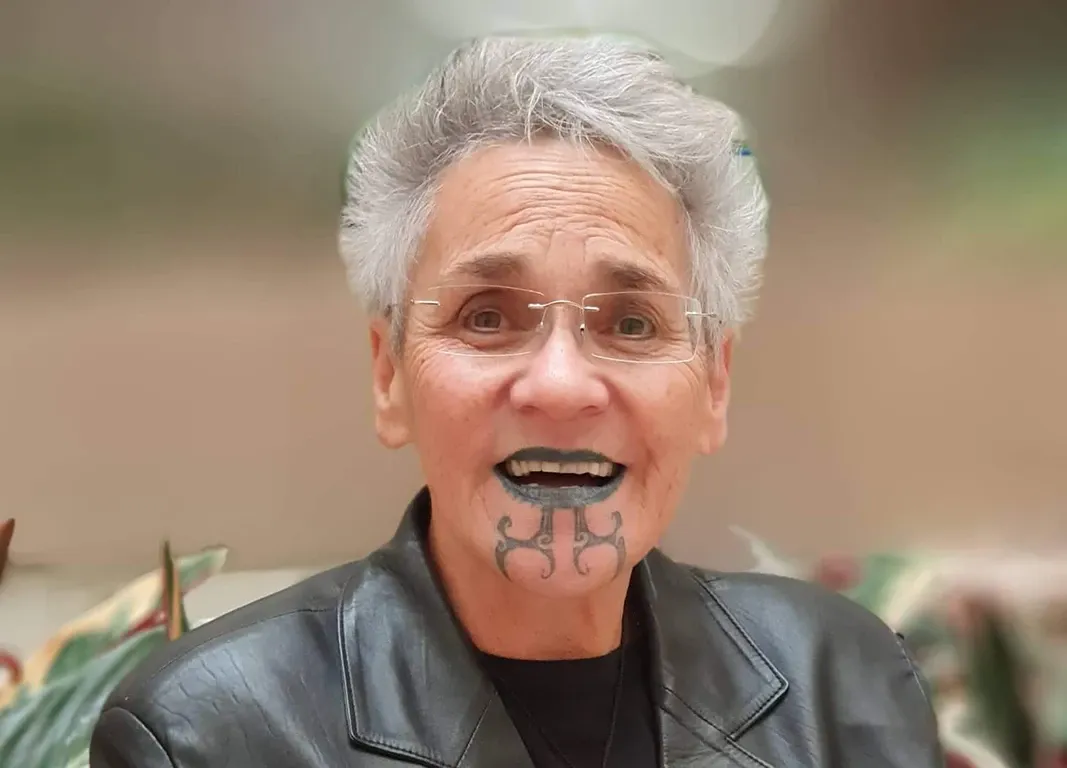
Ngahuia Te Awekotutu
Uenuku PRIDE at Auckland Museum is part of the Auckland Pride Festival.
MON 10 FEBRUARY, 6.00PM - 8.30PM
GRAND FOYER
ADULTS GENERAL ADMISSION $25
Not suitable for children aged 15 and under
Please note: there is 120 seated and 80 standing capacity at this event. Seats will be provided to those who are first to arrive on the night.
